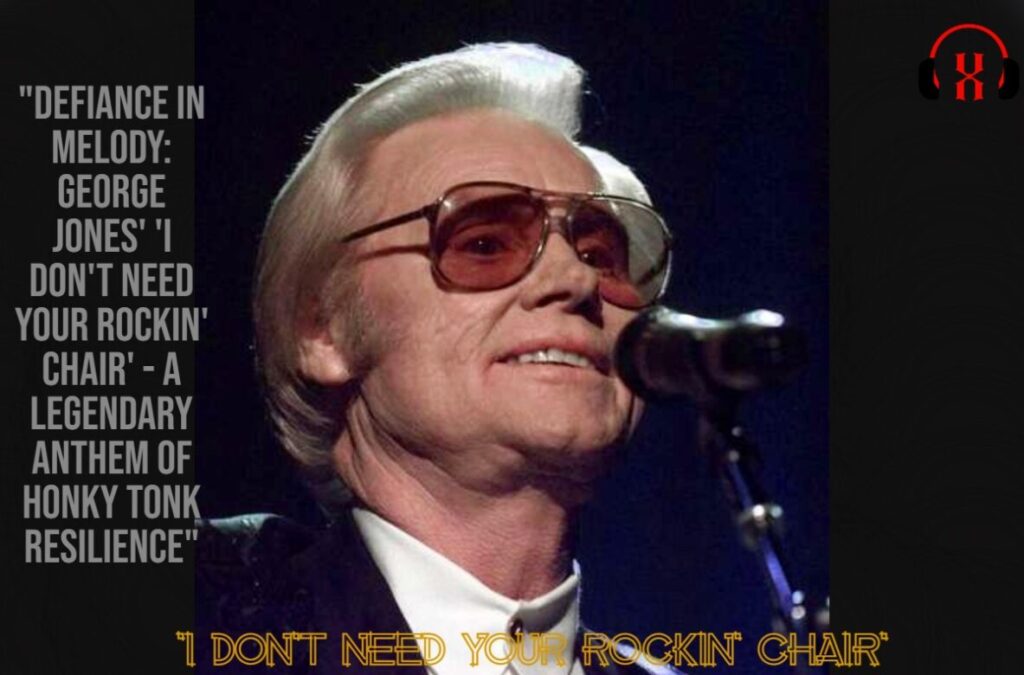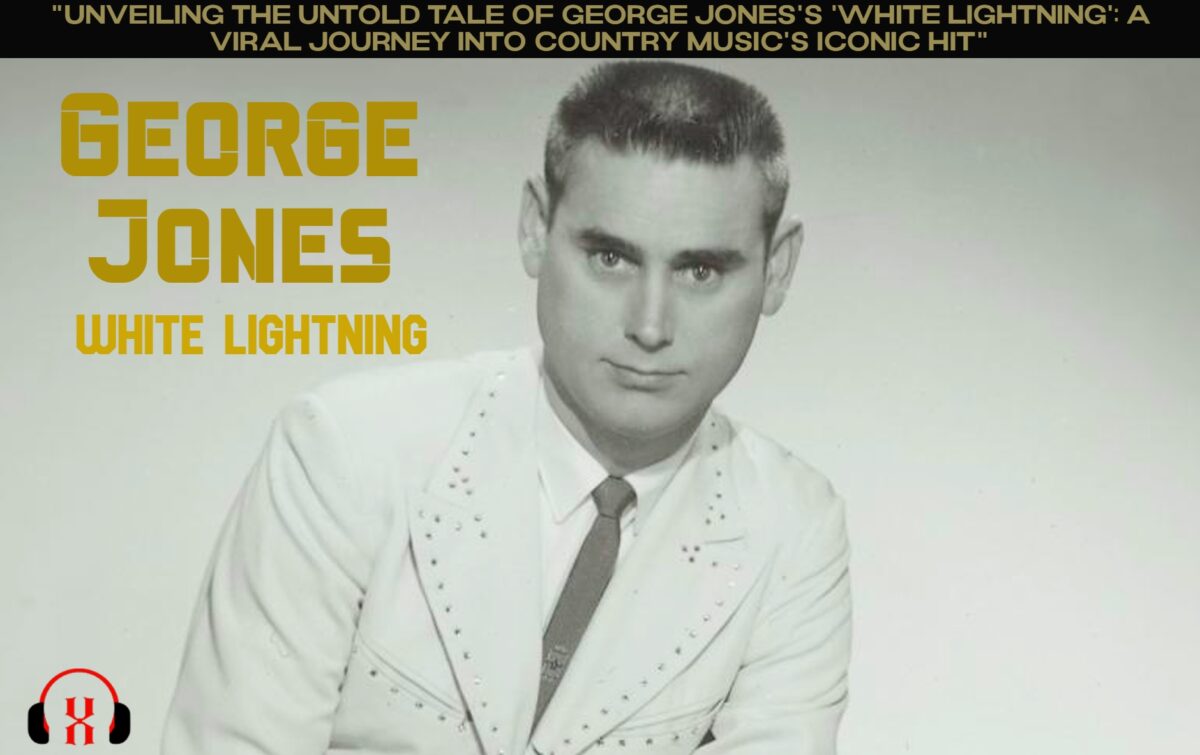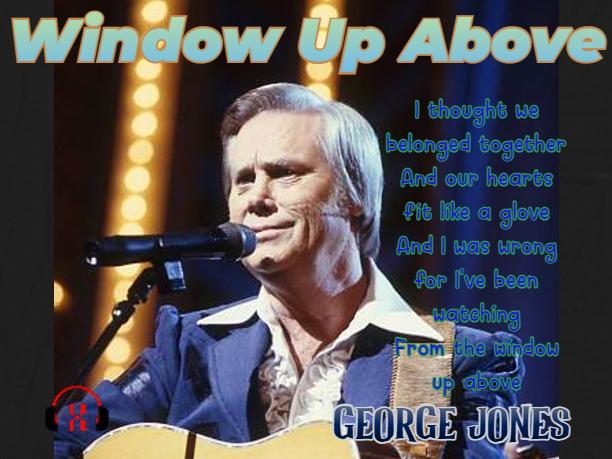![]()
Unraveling the Legend: George Jones and the Electrifying Tale of “White Lightning”
In the captivating realm of country music, certain songs stand out for their indelible impact and fascinating backstories. One such iconic track is George Jones‘s electrifying hit, “White Lightning.” Written by J. P. Richardson, better known as “The Big Bopper,” this chart-topping sensation from 1959 not only showcased Jones’s incredible talent but also held a profound significance in his musical journey.
Growing up in Beaumont, Texas, George Jones formed a lasting friendship with J. P. Richardson, another aspiring musician from their hometown. Despite their differing musical preferences, with Jones leaning toward country while Richardson embraced rock and roll, the bond between them remained unbreakable. Little did they know that their time together would be tragically short-lived.
Jones’s career took off when he signed with Starday Records in 1953 and achieved his first hit, “Why Baby Why,” in late 1955. By 1957, he had transitioned to the larger Mercury label, where Richardson worked as a promotions director. Meanwhile, the Nashville branch of Starday Records was established, with Don Pierce overseeing operations. Although Jones had moved on, Pierce continued to manage him and served as his main producer whenever possible.
In 1958, Richardson, now known as “The Big Bopper,” secured a recording contract with Mercury and struck gold with his hit single “Chantilly Lace,” which he also wrote. This pop classic soared to #6 on the Billboard charts, capturing the hearts of listeners. Richardson’s talent extended beyond his own performances, as he penned two more notable songs during that period: “Running Bear” and “White Lightning.”
It was during this time that Richardson discovered a Texas nightclub singer named Johnny Preston. Their collaboration on “Running Bear” propelled Preston into the Top Ten of the Billboard pop chart, marking his major breakthrough. Notably, both Richardson and Jones provided background vocals for Preston’s recording. The song’s success continued when Sonny James covered it in 1970, scoring his 12th number one country hit.
Richardson and Jones joined forces to co-write another gem, “Treasure of Love,” which became one of Jones’s early Top Ten records in 1958. Inspired by their fruitful collaboration, Jones approached Richardson with a request to record “White Lightning.” Much to Jones’s delight, Richardson replied, “I was saving it for you.” Excited to bring the song to life, Jones made his way back to Nashville, eager to book studio time at Owen Bradley’s Quonset Hut.
However, tragedy struck before Jones could embark on his recording journey. On January 23, 1959, Richardson, Buddy Holly, Ritchie Valens, and Dion and the Belmonts set out on the ill-fated “Winter Dance Party” tour. The journey took a devastating turn on February 2nd when their plane crashed near Mason City, Iowa, claiming the lives of the three rock stars. Richardson, suffering from the flu, had secured a seat on the plane after winning a coin toss against Tommy Allsup, who lost his seat to Valens. Waylon Jennings, another musician on the tour, voluntarily gave up his seat to Richardson due to the cold weather.
Just a week after the tragic accident, George Jones arrived at the Quonset Hut in Nashville on February 9, 1959, to record “White Lightning.” Still reeling from the loss of his dear friend, Jones was highly intoxicated during the session. It proved to be a challenge to capture an acceptable recording from him, as he stumbled through take after take. Buddy Killen, the renowned session bass player, played the galloping bass riff that opened the song, enduring pain and blisters on his fingertips from countless repetitions. After the 11th take, Killen’s fingers reached their limit, and he threatened to quit the session and even harm Jones for his drunken state.
Despite the setbacks, the third take of “White Lightning” proved to be the most successful, with only one noticeable flaw—Jones slurred the word “slug” as “ss-sslug.” The minor mispronunciation ultimately added charm to the record and became a signature element of Jones’s live performances, eliciting laughter and applause from audiences.
Years later, Jones apologized to Killen for his condition during the “White Lightning” session, although he claimed not to remember it in his autobiography. Killen humorously replied that they had to redo the song over 80 times, though the more accurate recollection from producer Don Pierce indicated 11 takes with the third one being chosen.
Upon its release on March 9, 1959, “White Lightning” swiftly climbed the country singles chart, reaching the number one position on April 13th. It also made a notable appearance on the Billboard Hot 100 pop chart, peaking at #73. With its infectious energy and Jones’s distinctive vocals, the song captivated audiences, solidifying his status as a country music legend. While “White Lightning” marked an early triumph in Jones’s career, it was his timeless ballad “He Stopped Loving Her Today” that would become his most enduring masterpiece.
The enduring legacy of “White Lightning” serves as a testament to the resilience and artistry of George Jones. Despite the challenges faced during its recording, the song’s triumph over adversity resonated with audiences, securing a special place in the hearts of country music fans. George Jones would go on to achieve even greater chart success, leaving an indelible mark on the world of music with his soul-stirring ballads.
Artist: George Jones
Album: Ultimate Country Classics
Lyrics
Well, in the North of Carolina, way back in the hills
Me and my old pappy and he had him a still
He brewed white lightnin’ till the sun went down
And then you’d fill him a jug and he’d pass it around
Mighty, mighty pleasin’, pappy’s corn squeezin’
Ssh, white lightning
Well, the “G” men, “T” men, revenuers, too
Searchin’ for the place where he made his brew
They were looking, tryin to book him, but my pappy kept on cookin’
Phoo, white lightning
Well, I asked my old pappy why he called his brew
White lightning ‘stead of mountain dew
I took a little sip and right away I knew
As my eyes bugged out and my face turned blue
Lightning started flashin’, thunder started clashin’
Fshhh, white lightnin’
Well, the “G” men, “T” men, revenuers, too
Searchin’ for the place where he made his brew
They were looking, tryin to book him but my pappy kept on cookin’
Whshh, white lightning
Well, a city slicker came and he said “I’m tough”
I think I want to taste that powerful stuff
He took one s-slug and drank it right down
And I heard him a-moaning as he hit the ground
Mighty, mighty pleasin’, your pappy’s corn squeezin’
Sshoo, white lightning
The “G” men, “T” men, revenuers, too
Searchin’ for the place where he made his brew
They were looking, tryin’ to book him but my pappy kept on cookin’
Sshoo, white lightning






